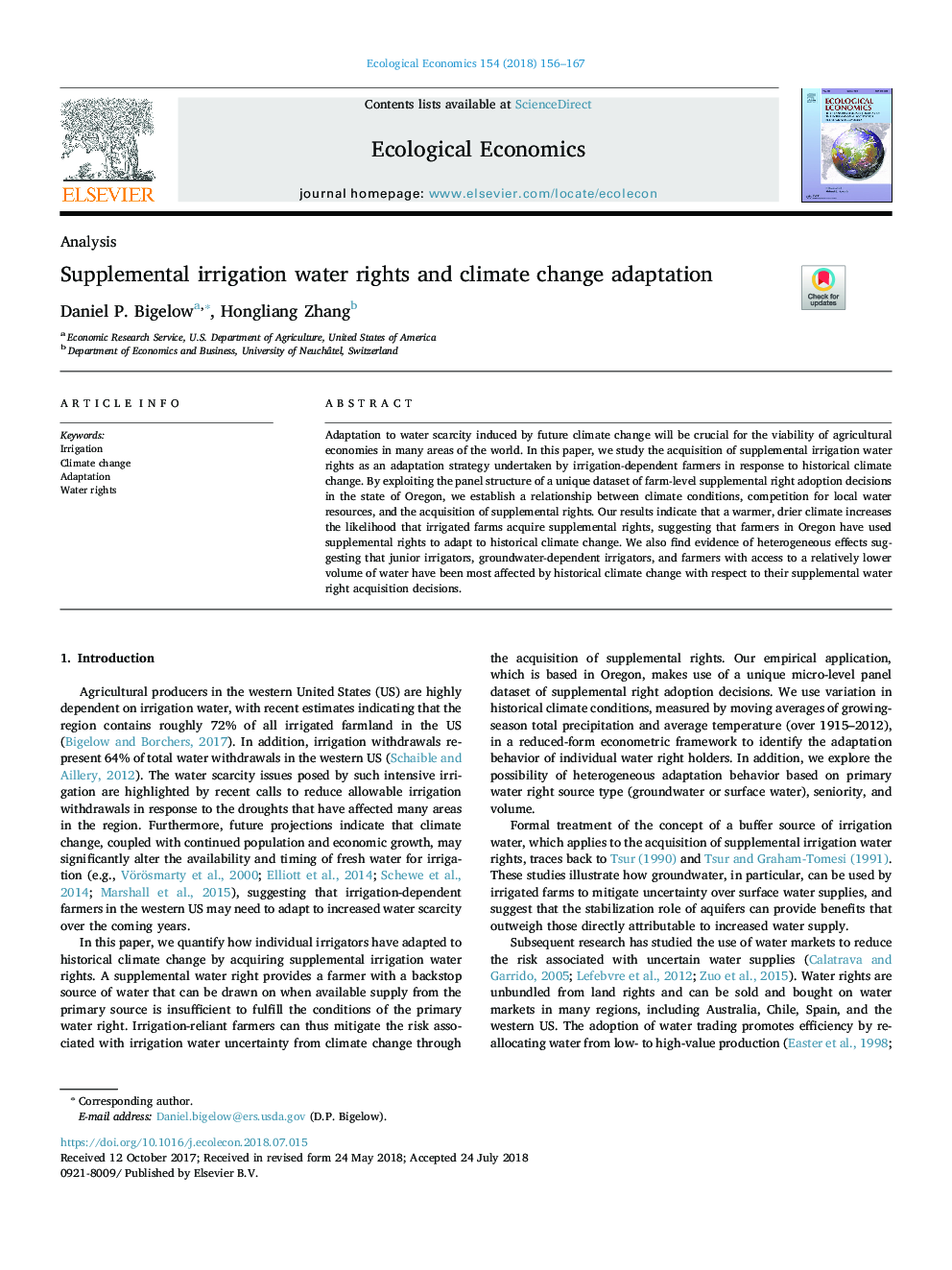| Article ID | Journal | Published Year | Pages | File Type |
|---|---|---|---|---|
| 11004744 | Ecological Economics | 2018 | 12 Pages |
Abstract
Adaptation to water scarcity induced by future climate change will be crucial for the viability of agricultural economies in many areas of the world. In this paper, we study the acquisition of supplemental irrigation water rights as an adaptation strategy undertaken by irrigation-dependent farmers in response to historical climate change. By exploiting the panel structure of a unique dataset of farm-level supplemental right adoption decisions in the state of Oregon, we establish a relationship between climate conditions, competition for local water resources, and the acquisition of supplemental rights. Our results indicate that a warmer, drier climate increases the likelihood that irrigated farms acquire supplemental rights, suggesting that farmers in Oregon have used supplemental rights to adapt to historical climate change. We also find evidence of heterogeneous effects suggesting that junior irrigators, groundwater-dependent irrigators, and farmers with access to a relatively lower volume of water have been most affected by historical climate change with respect to their supplemental water right acquisition decisions.
Related Topics
Life Sciences
Agricultural and Biological Sciences
Ecology, Evolution, Behavior and Systematics
Authors
Daniel P. Bigelow, Hongliang Zhang,
